The History of Gambling
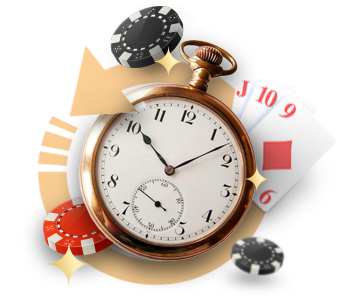
The history of gambling goes back thousands of years. In a modern gambling world full of casino resorts, plush poker rooms, and online betting, it’s hard to imagine that gambling once consisted of rolling sheep knucklebones across the dirt.
How did we go from using sheep knuckles as dice to casino floors with thousands of high-tech slot machines? You can follow along as we go over the origin of gambling, crucial milestones, US gambling history, and more.
The Origin of Gambling
The exact date when gambling was invented is unclear. Historians aren’t exactly sure who invented gambling either. Based on the evidence, though, games of chance date back over 7,000 years.
The Sumerians used sheep knucklebones as four-sided dice around 5000 BC. By 3000 BC, Egyptians began using the more-modern six-sided die. Ancient Chinese civilizations played the earliest card-style games with tiles around 2300 BC.
History of Gambling Timeline
Many milestones have happened over the lengthy history of gambling. You can see some of the most notable events in the timeline below.

History of Gambling in the US

1600s
Few details are available on the origin of gambling in America. However, gambling was popular in some colonial settlements in the 1600s. By the late 1600s, horse racing betting was rampant in Virginia and beyond. Many colonies also used lotteries to earn additional funding.
1700s
In 1774, the Continental Congress urged colonists to stop betting on cock fighting and horse racing. Their goal was to encourage citizens to avoid overspending. Nevertheless, gambling remained quite popular across the colonies.
A series of “Great Awakenings” from 1730 to 1859 promoted religious morals and values throughout America. The three Great Awakenings also caused many to view gambling as a sinful activity. Most American cities and states banned betting during this period.
1800s
Nevertheless, gambling continued on Mississippi riverboats and in Wild West settlements. Poker and Faro were prevalent in the 1800s. However, Faro would eventually disappear from the history of gambling in the US after dealers routinely cheated.
1900s
The crackdown on games of chance continued in the early 1900s. Nevada and New York banned casinos and horse racing betting in 1910, respectively. New Mexico outlawed casinos during the same period to gain statehood in 1912.
US gambling would experience a resurgence in the 1930s and beyond. States were reeling from the Great Depression and needed additional forms of revenue. Many states legalized horse racing wagering, while Nevada legalized casino gaming in 1931.
Atlantic City, NJ, emulated Nevada by legalizing casinos in 1977. Many other states have passed laws to approve casino gaming within the past few decades.
2000s
In May 2018, the US Supreme Court struck down a federal ban on sports gambling. This decision has since allowed dozens of states to regulate online sports betting.
Online Gambling Revolution

Microgaming launched Gaming Club, the first-ever online casino, in 1994. Gaming Club didn’t offer too many games or even real-money play, but it was a starting point. In 1996, CryptoLogic opened the first real-money online casino in InterCasino.
Other online casino developers, such as Realtime Gaming (est. 1998), joined the movement. The introduction of wireless internet helped casino providers in the evolution of online gambling.
The games improved over the years from rudimentary slots and table games to 3D online slots and realistic tables. In 2003, Playtech introduced the first live dealer casino. In contrast to regular table games, live casino games feature a human dealer and real tables.
Smartphones Change the Game
The first mobile casinos were relatively unpopular due to the technologically limited phones. Released in 2007, the first iPhone would solve this problem and boost the success of mobile gaming.
The iPhone offered better features and a superior touch screen compared to BlackBerry—the former market leader. The first Android phone (HTC Dream) also paved the way for a better mobile casino experience.
Today, Android and iOS smartphones dominate the mobile gambling market. They give players the ability to enjoy real-money casino games from virtually anywhere. They’ve also improved to the point where they offer just as good a gaming experience as desktop computers.
Popular Gambling Games Throughout The Decades
Some gambling games are still highly-popular despite being hundreds of years old. The following casino games have withstood the test of time and feature intriguing origin stories.

Blackjack
Miguel de Cervantes—famous for writing Don Quixote—wrote the earliest-known blackjack account in 1601. Known as ventiuna in Spain, the game spread to France, becoming much better known as vingt-et-un (21).
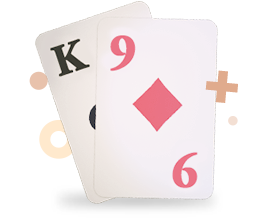
Baccarat
Italian Felix Falguiere created the first modern-day baccarat game by using tarot cards. Initially called “baccara,” it spread throughout Italy and into France. By the 1800s, the French developed a more-refined version called chemin de fer.
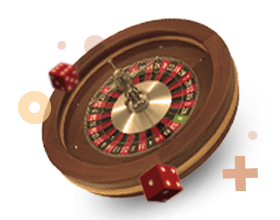
Roulette
French physicist Blaise Pascal tried and failed to create a perpetual motion machine in 1655. He did, however, develop a rudimentary roulette wheel in the process. The modern roulette wheel debuted in a Parisian casino in 1796.
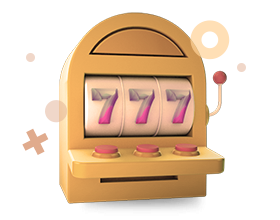
Slot
Sittman and Pitt produced the first slot machines in 1891. Debuting in New York, these slot machines had five drums and didn’t offer automatic payouts for wins. Charles Fey improved this design with the Liberty Bell, which had three reels and automatic prizes.
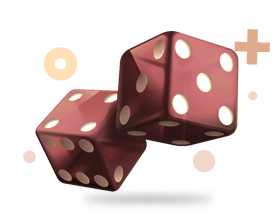
Craps
Craps has been around in some form or another for thousands of years. However, it didn’t reach its current casino form until after World War II. Las Vegas casinos put out craps tables to satisfy WW II veterans, who’d been playing street craps for many years.
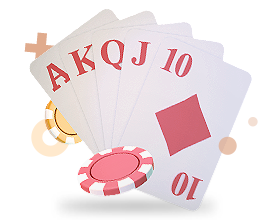
Poker
The origin of poker is unclear. Its precursor may be As Nas, a 16th-century Persian card game. French settlers in New Orleans introduced a poker-style game called Poques in the early 19th century. Poker was born soon after on Mississippi riverboats.
FAQ – The History of Gambling
The following are some of the most common questions we receive about the origin of gambling.
When was gambling invented?
Sumerians receive credit for being the earliest gamblers because they played dice games in 5000 BC. However, no records indicate when gambling was invented in Sumer or elsewhere.
Where did gambling start?
Sumer sat in between the Tigris and Euphrates Rivers in Mesopotamia (present-day Iraq and Kuwait.). The ancient Sumerians gambled with four-sided dice as early as 5000 BC.
Who invented gambling?
Historians are unclear on exactly who invented gambling. Archaeologists have uncovered Sumerian gambling dice dating back to 5000 BC. The ancient Egyptians also gambled with dice as early as 3000 BC.


